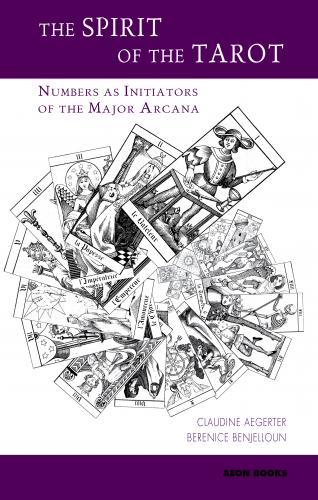The world is forever moving, but it is the stability and the incor ruptible nature of the will manifested in man that we are look ing at here. The Emperor’s focus on the vision does not influence the adaptability of his mind. Our problem is that we are always seeking balance, for most people want balance and harmony; in other words they want to be happy and well. The only stability we should seek to acquire is the stability of will and wisdom, for sta bility, balance and harmony in the physical is very transitory. The world we live in thinks that what we all need is a family, a partner, health and money, but the only true stability is a vision and the ability to apply it. If this applies to the former ideal, so be it, but the vision is the key.
The cube represents the power that knows that it is viable until the end of the world. It is not our power, but the force that comes through us. That golden cube goes through from revolution to revo lution. It is durable and is not going to be overturned, because it has been given the ultimate power, which is to hold the vision. The Emperor is truly the first cornerstone of the New Jerusalem and so he is sitting on that golden cube; this tells us that he has dominion. He doesn’t have to work at it, for he can trust it so completely that he doesn’t have to do a thing. It is his throne, just as misericord is one of his aspects. He can judge and guide the world because he has achieved the constant stability of holding the vision. The cube is underneath him, but he doesn’t have to stand on it, because that would mean he wants to leave it behind; sitting on something means we trust it. He’s got his legs crossed for he’s not going to run; he is at ease, for the vision will never fail him. He is not going to go into the excess of tyranny, for the cube is telling us he has gained his gold, so he is at peace with the world.
The Emperor is the foundation stone of the most important build ing, the sacred temple or church of humanity. From the beginning of time, the building of the temples or churches has always started with the ritual of laying the cornerstone. This job was traditionally done by kings or emperors, to honour God and ask for fertility and abundance for the community. The ritual was also about protection, being a warning to those who might come to destroy or damage it. No edifice was built without a cornerstone as a manifestation of the idea of God. The one who lays it holds the divine right to do so, that is why the kings or heads of state still do it. This has taken place since the beginning of time, because the sacred building always had the eye and the mind of the first initiate, king or priest, who offici-ated at the ritual.
We must not forget the part played by the great brotherhood of Initiates, who were the ones who crafted that plait before us. We do not thank them enough in our prayers, or recognise them in our daily lives, even though they have given their lives to create the lad der of light. We do not thank ourselves enough, for however weak we may be we still carry on holding a vision of peace for humanity. There are numerous beautiful Souls that gave their lives to do the work. This is not to do with thanking the gods of nature for giving us the harvest; it is foregoing today’s harvest, so enabling the seeds of light to be anchored in the pure soil of the Soul for tomorrow’s harvest.
Because The Emperor has done the alchemy, he is the result of the great work of the transmutation of all matter, as well as the puri-fication of that which has been soiled, so matter is rendered pure and psychically precious. Because of this he can have dominion over the world he lives in.
If we do not find in nature the way by which we can see our selves, so enabling the God we live in to see itself, then there is no life. The only reality is perception, which is an attribute of Spirit. We are not the centre of the world for if we die life carries on, but if there are no more witnesses to allow awareness, there is no light in life because there is no perception.
A keyword of the 4 is ‘severity’, which tells us that it is only out of the experience of knowing every little bit of the suffering in the human chain that we can become an Emperor. He is severe because he is trying to take people out of their misery by saying to them “Go to your death quickly my son, you will feel better after”. This idea is appropriate to mercy, or ‘misericord’, for it uplifts the one who exercises it as well as the one who needs it. It is energetic and mag netic, so the weak ones
